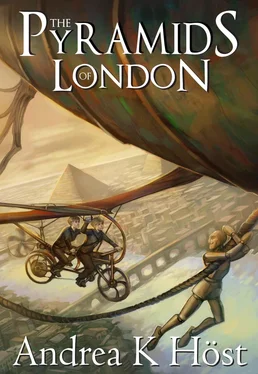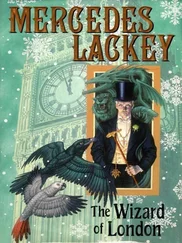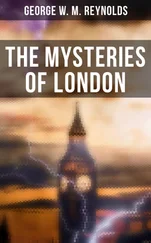“The Suleviae won’t push for territory they can’t defend,” Evelyn said. He paused, then added blandly: “Though a few more years of Prince Gustav turning up on their doorstep every five minutes might change that.”
Lyle, briefly abandoning correct behaviour, pretended to throw a seedcake at him, and Evelyn ducked and laughed.
Lynsey, watching them with fond tolerance, said: “The position isn’t as clear as you might think. But we mustn’t bore Arianne rehashing old debates when we came to offer our help.”
Rian, who had been trying to fit an effort to unite Albion with a plot revolving around fulgite, seized the convenient opening.
“My goals in the short term revolve around clothes and transportation,” she said. “It sounds as if purchasing a hummingbird is a fraught investment, thanks to the fulgite scarcity.”
“You’d do better using taxicabs,” Evelyn agreed. “Though given the prices this last couple of years, perhaps the best sense is buying a hummingbird and then hiring a well-armed chauffeur. Or two. At this rate, by the end of the year horse-drawn will outnumber fulquus-powered once again—just when the streets were starting to be manageably clean.”
During the light debate that followed, ranging from whether Rome was deliberately creating a fulgite scarcity, to the vexed question of where the Republic was mining it in the first place, Rian could discover no glance or intonation or vampirically-sensed emotion that suggested that fulgite held particular significance to any of her guests. She tried a different tack, mentioning how Griff’s disappointment at not seeing Sheerside had been suitably mitigated by Forest House, and then asking Lynsey if she’d been to Sheerside.
“Oh yes. It’s Evelyn’s great joy to haul unsuspecting newcomers about the place, and point out where people were murdered or fought duels, move on to ghost stories, and then lose his victim in one of the oldest sections.”
“Only you, Lynsey,” Evelyn said. “And it wasn’t deliberate. Well, not completely.”
“We first visited when I was sixteen and Lynsey twelve,” Lyle explained. “We took her into the Underhouse.” He grimaced. “She found her way to Lord Msrah’s private rooms, of course. Fortunately her blood is not right for him.”
“Lynsey is a great favourite of Lord Msrah,” Evelyn said, ignoring the note of genuine relief in Lyle’s voice. “He taught her to fence.”
“My first lessons, at any rate, and I continued learning back home. I still haven’t defeated him, but he no longer holds back quite so much.”
“Fencing.” Rian liked the idea on multiple levels. “Do you have a recommendation for a tutor, Lynsey? I’ve found myself thinking of self-defence lately.”
“I can introduce you to my London class,” Lynsey said. “I’ve taken a position out of the city, but the new instructor is excellent.”
Rian asked where Lynsey would be working, only to have Evelyn interrupt.
“You’ve never agreed to involve yourself in Folly’s latest extravagance?” he asked. “I thought you were joking.”
“The principle of the idea seems sound to me. Besides, the pay will be very good.”
“Folly? Lord Fennington?” Rian suppressed any hint of heightened interest. Dyfed Fennington was perhaps the richest person in Prytennia, infamously eccentric, but with many connections to industry. Just the sort of person who might fund an investigation into haunted fulgite—or perhaps be behind the initial invention. “You’re teaching him fencing?”
“He’s starting a school,” Evelyn said, shaking his head in amused contempt. “Not content with his other toys, he wants some children to play with.”
“Lord Fennington is converting the Tangleways Estate,” Lynsey explained. “He believes that Prytennia’s current system of schooling is limited and arbitrary, and he wishes to chart a better path.”
“Fencing and horse riding as part of a national curriculum.”
“Physical education.” Lynsey was unperturbed by Evelyn’s mockery. “Sport, art, music, the sciences, literature, domestic and mechanical crafts. A framework of minimum standards and paths to excellence to be rolled out to all the village schools.”
The mention of village schools roused unhappy memories for Rian, but she simply asked: “Would you recommend it, this school-to-be? Or will it be all excess and a waste of time?”
“You’re thinking about it for your three? The teachers I’ve met so far are very good. The workload will be demanding, and I would expect some very annoyed parents when it becomes clear that mere attendance is not a guarantee of success. But if Lord Fennington manages to attract sufficient students for the first few years, they will gain a great deal.”
“Charged an exorbitant price to be test subjects in Folly’s latest passion.”
“I thought you liked Lord Fennington,” Lyle said.
“I do,” Evelyn replied. “Who doesn’t? But he flits from interest to interest like a butterfly. What happens in a year or two when he discovers a new passion?”
“He’ll find a suitable Head to take over,” Lynsey said. “And depending on that person, and the number of students remaining, the school will founder or prosper.” She smiled at Rian. “There’s an open day on the twenty-fifth. I’ll send you the information and you can make up your mind away from Evelyn’s naysaying.”
“The way you look now, you’ll be mistaken for a student,” Lyle added to Rian, with a mix of discomfort and fascination.
“Going to school with them would be an excellent way to appal my nieces. I’ll have to give it some thought.”
A crash followed by a solid thump brought all three of her visitors to their feet. Rian rose less hastily, focusing her senses to catch the departure of a half-dozen tiny rivers, and noticed Evelyn also looking toward the grove.
“I’d better check what that was,” she said. “Would you care for a tour?”
As they climbed she explained folies and watching ravens, and was entirely unsurprised to find black feathers in the attic next to a fallen trunk. The Order of the Oak was certainly taking an interest.
But no raven had opened the chests crowded into one half of the attic, or disturbed the piles of clothing she’d been sorting through that morning. Something had managed to creep in here and start searching, before the folies noticed. And there’d been no river.
“We walk on the faces of the dead.”
The South London Orientation and Expeditionary Force blinked up at their navigator, Melly.
“We’re walking on grass,” Griff corrected. “And there’s only skeletons below. No faces.”
“Skulls have faces enough,” Melly said. She raised her bag-laden arms, a stretching, expansive gesture. “I love this place, but no matter what anyone says, we’re walking over people. Rooms of bone and teeth.”
Climbing the last few feet to the top of the rise, Eluned turned to gaze back at the city. London was such a flat place that this must be one of the best views of it, unless they could gain permission to scale one of the three major pyramids that rose higher than any other building. One of those was not too terribly far south, but most of the view was a grand sweep of tile and shingle, the spinning blades of roof-mounted dynamos, and the occasional tips of lesser pyramids.
Turning inward, Eluned could remove the city completely from her view, replacing it with rounded green slopes marked by a tinge of brown thanks to the summer of windstorms. London’s Great Barrows were shaped like three overlapping almonds—a perfect triquetra to symbolise the coming together of the Suleviae as Sulis. The south-west barrow was almost deserted, only a handful of kite flyers ahead.
Читать дальше




![Андреа Хёст - Snow Day [Touchstone - Extras]](/books/404760/andrea-hest-snow-day-touchstone-extras-thumb.webp)







